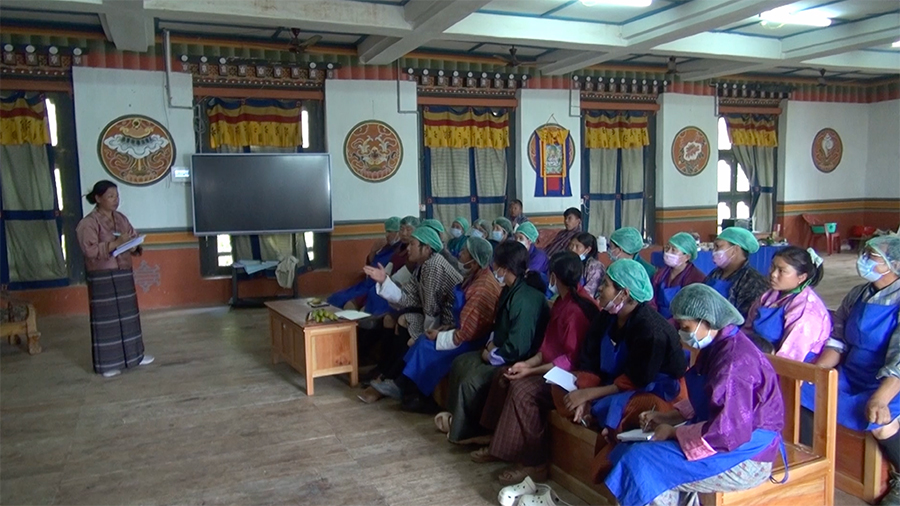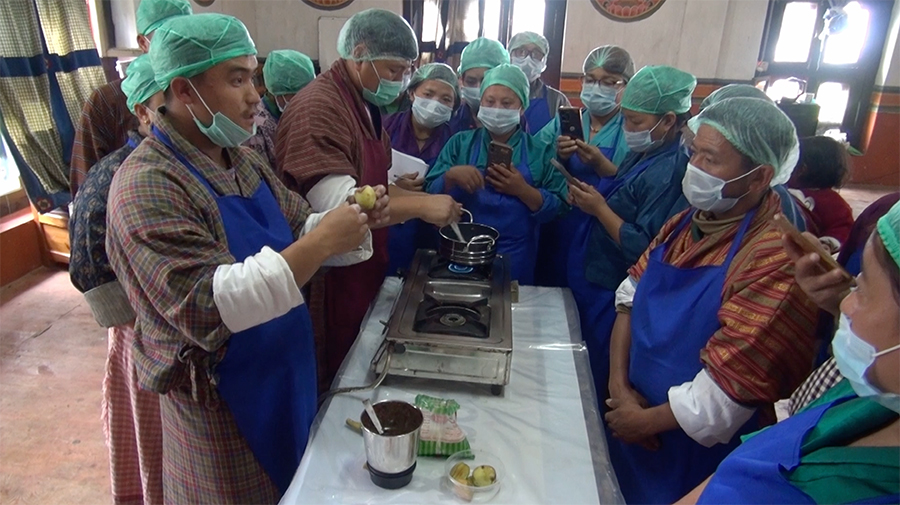 From traditional farming to food innovation, farmers in Lumang Gewog in Trashigang are learning new ways to turn local crops into market-ready products. 27 individuals underwent a food processing and product development training last week.
From traditional farming to food innovation, farmers in Lumang Gewog in Trashigang are learning new ways to turn local crops into market-ready products. 27 individuals underwent a food processing and product development training last week.
Using locally produced cereal, vegetables and fruits, the participants developed new products such as Adzuki bean paste, quinoa paste, and sweet potato paste.
 They were also trained on how to make cookies, candies, banana chips, and varieties of pickles using local ingredients.
They were also trained on how to make cookies, candies, banana chips, and varieties of pickles using local ingredients.
Officials from the Post-Harvest Division and the Dru Na Gu proprietor facilitated the training.
 The training was organised by Tarayana Foundation and funded by Bhutan Foundation, in collaboration with Wamrong Dungkhag.
The training was organised by Tarayana Foundation and funded by Bhutan Foundation, in collaboration with Wamrong Dungkhag.
Jigme Wangdi, a participant said “By using locally available flour, milk, and sugarcane jaggery, I can now produce cookies and various types of candies. I have learned the skills to make these products, and from now onward, I think we won’t have to waste our surplus farm product.”
Sangay Chezom, another participant said “We grow all types of cereals and vegetables. Even after consumption, we are left with a surplus product. We try to sell it, but due to market challenges and long distances, it is difficult. So, we end up feeding the excess vegetables to our cattle. But with this training, we have learned how to diversify our products. I think we can now sell them after meeting our household needs.”
Sonam Jamtsho, Eastern Tarayana Coordinator said “In order to sell our products, we have identified potential markets. The Dru na Gu proprietor and our farmers have jointly discussed plans for production, and they have agreed to support us with marketing. We have also signed an agreement, and hereafter, we plan to work accordingly.”
Lumang Gewog produce around 1,500 metric tonnes of cereals and 150 metric tonnes of vegetables in a year.
With the skills and knowledge gained, these farmers are now equipped to reduce food waste, add value to their produce, and tap into new market opportunities, paving the way for greater self-reliance and rural prosperity.
Sonam Darjay, Trashigang
Edited by Tshering Zam










